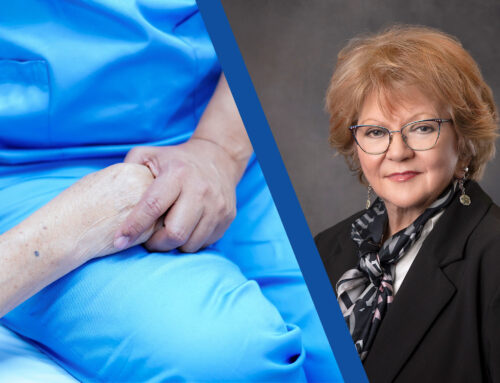When my mother was diagnosed with end-stage lung cancer, my world shattered. As the eldest child, I became her primary caregiver, a role I embraced out of love and a sense of duty. Little did I know this journey would be one of my life’s most challenging and transformative experiences. Here is my experience about how to deal with the death of a family member.
The Beginning of a New Role
Becoming a caregiver is a daunting task, especially once you begin coping with the loss of a loved one. My days were filled with managing medications, scheduling doctor appointments, and ensuring my mother was comfortable. At night, I lay awake, my mind racing with thoughts of how to deal with the death of a person who had always been my rock. The fear of losing her was overwhelming, but so was the fear of not doing enough while she was still here.

The Lifeline of Hospice Care
When her oncologist suggested hospice care, I was hesitant. I associated hospice with giving up, but the reality was quite the opposite. Hospice care services provided my mother with compassionate care focused on what she needed and offered me invaluable support and guidance. They helped manage her pain and symptoms, allowing us to concentrate on making the most of our remaining time together.
Hospice care also provided us with the most needed emotional and spiritual support, helping us understand the complex feelings that come with progressive illnesses. I learned that it was not about giving up but about ensuring the best possible quality of life for my mother in her final days.
The Conversations That Never Happened
As her cancer progressed, I often found myself reflecting on our life together. “I wish I would have asked you about everything,” I thought countless times. There were so many things I wished I had said and so many questions I never asked. The weight of these unspoken words and unanswered questions grew heavier as time passed.
We had moments of deep conversation, but there were still so many stories, pieces of advice, and words of wisdom I longed to hear. I realized that the time we had left was slipping through my fingers like sand, and the opportunity to ask those questions were fading away.
Coping with Caregiver Guilt
Being a caregiver at home is a full-time job, one that comes with immense responsibility and, often, feelings of guilt. Caregiver guilt can manifest in various ways, like feeling like you are not doing enough, regretting the moments you felt frustrated or overwhelmed, or simply wishing you had been more present. Survivor guilt symptoms, too, began to creep in as I struggled with the notion that I would continue living after my mother’s passing.
I remember one night in particular, sitting by her bedside, holding her hand. She was asleep, and her breathing was shallow but steady. I whispered, “I could have told you that I loved you more often. I could have asked you about your dreams, your fears, your joys.” Tears streamed down my face as I realized how much I had taken for granted.
Finding Support and Understanding
During these times of emotional turmoil, I found solace in support groups for family caregivers. I was able to attend these meetings thanks to hospice, which offered respite care so that I could take a moment to rest from caregiving duties. Sharing my experiences and hearing from others who were going through similar situations helped me feel less alone. These groups became a safe space to express my fears and frustrations without judgment.
Hospice care also offered grief counseling, which helped me in coping with the loss of a loved one. The counselors and chaplains taught me that it is okay to feel a wide range of emotions and that grieving is a deeply personal process with no right or wrong way to go about it.

The End and a New Beginning
The day my mother passed away was the hardest day of my life. As I sat by her side, with my fingers gently grabbing her hand one last time, I whispered all the things I wished I had said. I told her how much I loved her, how grateful I was for everything she had done for me, and how I would always carry her memory with me.
In the weeks and months following her death, I grappled with how to deal with the death of a family member who had been such an integral part of my life. The pain was immense, but so was the love and support from friends, family, and the hospice care team. They helped me understand that it is okay to mourn, to feel lost, and to take time to heal.
Moving Forward with Love and Memories
Coping with the loss of a loved one is a journey that does not have a definitive end. It is about learning to live with the pain and finding ways to honor their memory. I began writing a journal, recounting stories of my mother, things I wish I had said, and moments I cherished. This practice helped me process my grief and keep her memory alive.
I also found comfort in volunteering with hospice care organizations, offering support to other families going through similar experiences. It was a way to give back and to keep my mother’s legacy of love and compassion alive.
Being a caregiver for a family member, especially at home, is a profound experience that comes with immense challenges and rewards. It is a journey filled with love, sacrifice, and, inevitably, loss. Through hospice care services, support groups, and personal reflection, I learned to cope with the loss of my mother and to cherish the time we had together.
One thing I could share with others in similar situations would be this: Do not wait to ask those questions or say those words. Life is fragile, and our time with loved ones is precious. Embrace every moment, and remember that it is okay to seek help and support. You are not alone on this journey.




